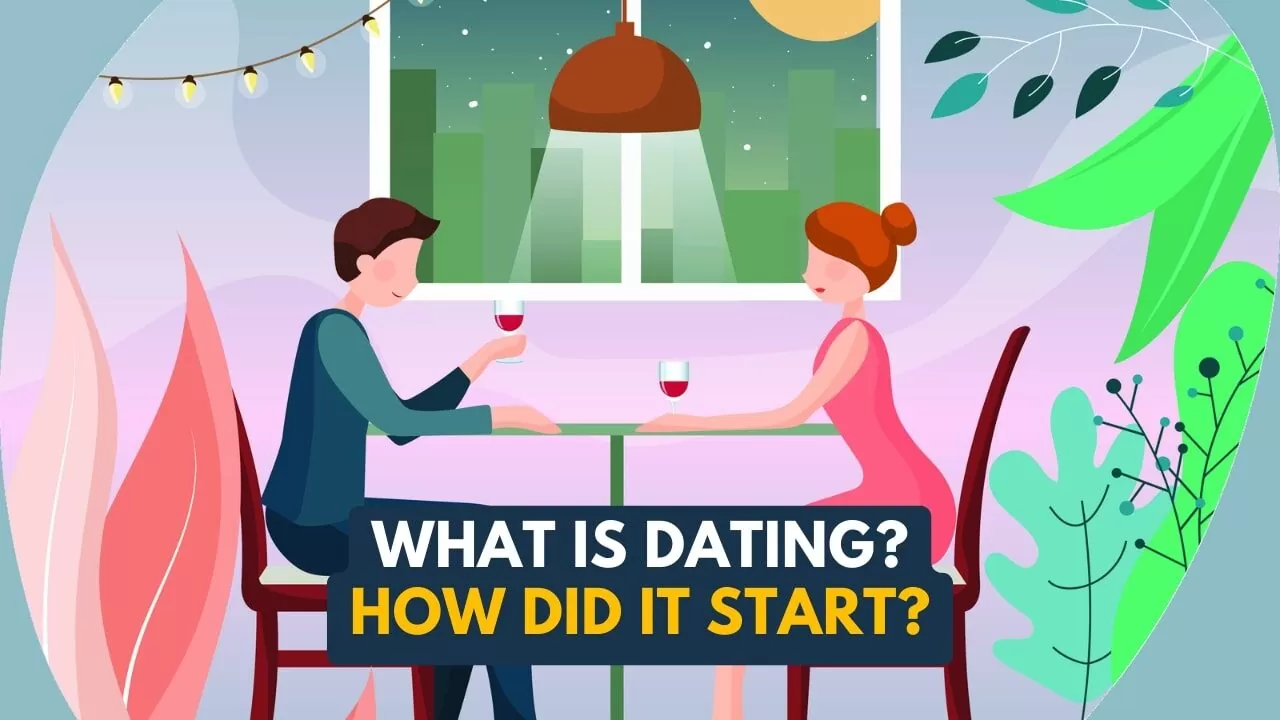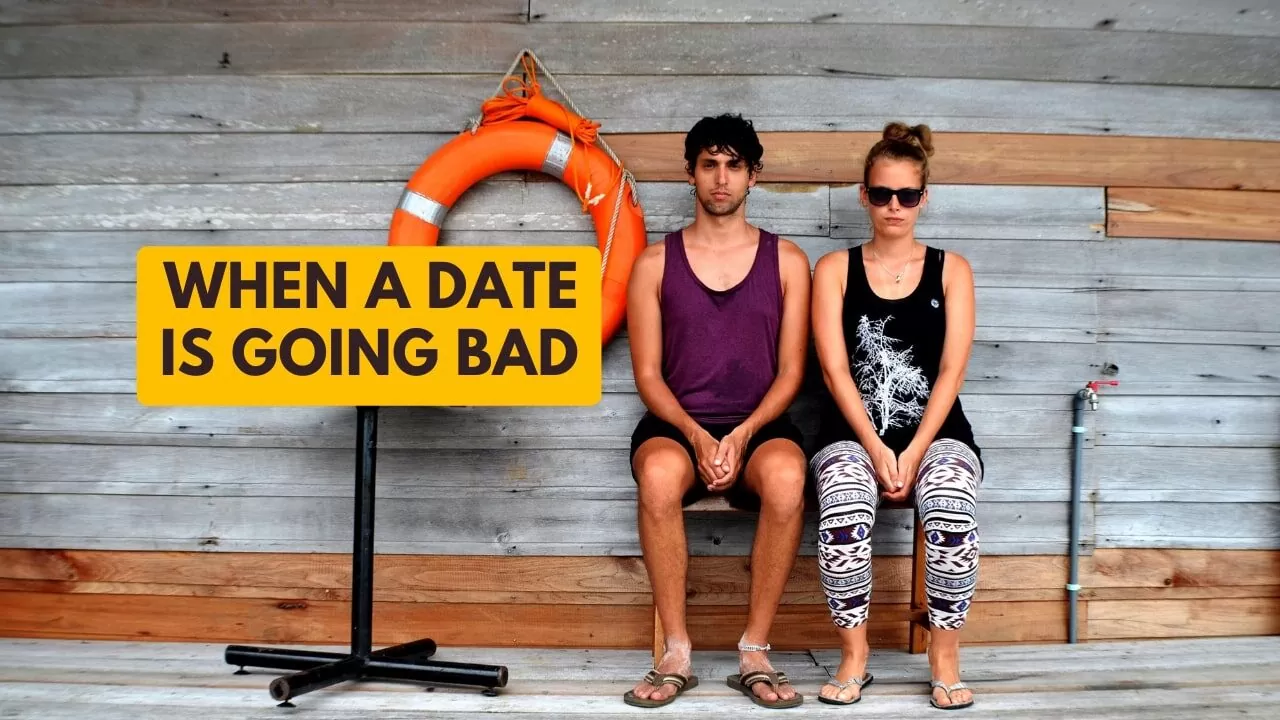Today's Thursday • 8 mins read
Dating is a romanticized version of friendship.
Like friendships, a date can become a life-long bond that we never stop cherishing.
We want our date to bring us joy and meaning in our life. We want them to show us what true empathy feels like. We secretly wish they help us heal from the shame and trauma of past relationships.
Unfortunately, some of our dates can turn toxic and ruin our experience. They make us return home hurt and lost.
By the way, what exactly do we mean by dating, and how did it start? Let’s start there before diving into the principles of healthy dating and signs of a bad date.

What do we mean by dating?
Dating is meeting someone with an intention of knowing them better and possibly romancing them in the future. The relationship can be between people of any gender. It can be casual, or it can be serious, with the possibility of marrying and having a family.
It involves spending time together, sharing stories from their lives, learning about each other’s values and nature, assessing their mutual compatibility, and examining whether they can commit to each other for a lifetime.
Where did the idea of dating come from?
Dating as we know it today dates back to the start of the 20th century. In fact, the word “date” itself is quite recent, serendipitously invented in 1896 by George Ade, a journalist. After initial persecution by the police at the behest of upper-class men, dating was socially accepted by the late 1910s.
Before dating became the norm, marriages used to be business-like transactions. Families formed pacts to marry off their offspring based on each other’s property, status, wealth, and influence. Once the families agreed, the eligible men and women were allowed to meet and talk under the watch of a chaperone.
Though called “courtship,” they were more about expanding reach and clout. The custom was particularly rife among the rich, famous, powerful, and political families.
However, as the twentieth century progressed, the Industrial Revolution happened, and more men started earning salaries, women joined the workforce, and a new socioeconomic class, the middle class, emerged.
As the world became more equal, young people started seeking love and compatibility in a prospective mate. Dating became the more conventional way of finding a marriage partner.
Although the modern dating rituals seem to be an entirely different game, there are some parallels with those earlier traditions.
For most dating people, the goal still is to settle down in a marriage. While family approval is no longer as important as it once was, most dating couples still want their families and friends to approve of the person they are planning to have a long relationship with.
What are the signs of a date going bad?

Any dating relationship is vulnerable to abuse, whether it is obvious or in ways that are hard to point a finger at. You have no way of knowing if the person you are about to date is a covert narcissist or an unconscious gaslighter.
The risk of a date going wrong gets higher when you meet ‘strangers’ through online dating apps.
Of course, you cannot entirely control who you end up spending your life with, or what a person turns out after 7 years of a relationship, but you can control how you approach a dating encounter.
The best approach is to identify a dating situation turning disastrous early on. And the best advice is to safely leave at the first sign of a problematic date.
Here are 13 signs of a date going bad:
- Your dating partner starts to make inappropriate innuendos or poke fun at you.
- If they ask you to change your relationship status on social media on the first date, this is a red flag.
- If they make you wait for an unusually long time, you should be cautious of their future behavior.
- If they get you an overly expensive gift, it could be a sign that they are love bombing you.
- They start to avoid eye contact, speak to you in monosyllables, and stare at your body inappropriately, read the hint that they would rather leave.
- They start talking about their first love, or previous relationships, and do so in lurid details.
- They are verbally abusive, even if not to you directly, but to others present or absent there.
- If they try to intimidate or threaten you in any way, even jokingly, walk out. Walk out if even playfully suggest they’re leaving so you’ll have to pay the tab at the expensive restaurant.
- Some other red flags are your date drinking too much and asking you to get drunk, withholding crucial information about themselves, and talking only about themselves.
- They give you bad advice, treat your past unfairly, and are controlling, unconscientious, or rude.
- They are too emotional, or they are mostly telling their sad stories about how people treat them wrongly and dishonestly.
- They invade your personal space, ask you unsettling questions, and do not respect your boundaries.
- They avoid making plans for the next meeting, or even when they do, they do not appear as if they will follow it up.
What are the principles of healthy dating?
Every dating experience should be enjoyable and enriching, and one that you want to repeat.
Here are the 10 principles of healthy dating:
- Try to make it work.
- Accept them as they are.
- Stay open to new experiences.
- Be curious, but not judgmental.
- Invest time, resources, and energy.
- Establish clear and healthy boundaries.
- Listen actively and be aware of what’s not being said.
- Understand and respect each other’s values and beliefs.
- Think before responding to a triggering comment or action.
- Own your mistakes and ask to be forgiven without blaming them.
What are the benefits of healthy dating?
It can help you learn from each other’s mistakes. Healthy dates can inspire people to embrace each other’s good habits, like those of financially happy people.
A positive dating experience can help you negotiate the relationship better and find more ways to support than oppose each other, both in your good times and bad times. It can help you connect with new people with similar goals and values.
An example: Suppose you go on a date with someone who values healthy eating, meditation, yoga, and adequate sleeping. During your dating, you get motivated by their healthy lifestyle.
You ask them about some easy ways to start a healthy lifestyle, like how to make exercise a daily habit. They ask you to join them for a morning jog, and you agree.
Now, when both of you practice a healthy lifestyle, you have a better chance of living a happier and longer life if you decide to be together long-term. It also helps your communication since you will both have some common goals and needs to talk about.
Good communication helps couples in spotting potential issues early on, thereby preventing them from becoming bigger issues in the future.
Final Words
So, here are the three most crucial takeaways:
1. Zero Tolerance For Abuse
Be ready to walk out of any date at the first sign of insult or offense, no matter how subtle. Your dating experience should always carry a zero tolerance policy for abuse.
In fact, if you feel uneasy at their sight without them noticing you, you will be 100% correct in leaving the scene without meeting them.
2. Acceptance of Rejection
Every rejection hurts, no matter who rejects you or how you get rejected. But being rejected by a date who could have been your potential mate, can be devastating.
Relationships, especially romantic ones, can end for several reasons: incompatibility, infidelity, and abuse, just to name a few. People can change and relationships can end, irrespective of how long two people have been together.
Every date you like may not like you back. They can reject your love even though they admit there is no basis for it or anything wrong with you.
Learn to handle rejections and accept their decision of leaving you. First, you cannot keep everyone in your life; accepting that fact is a healthy way to go forward in life. Second, each rejection makes you more resilient and opens up other, better opportunities.
3. You Can Date Yourself
Finally, realize that you do not have to succumb to societal pressures to marry as a human duty. As adults, we do not have to find the right partner and get married. Singlehood can be a satisfying state, and you can take yourself on dates.
• • •
✶Any relationship can go sour after a given amount of time. No one is guaranteed a lifetime of relationship bliss. The way to save yourself from being dragged along any further than necessary is to recognize it. Here are 4 Signs of A Toxic Relationship (And 7 Ways To Move On).
• • •
Author Bio: Written and reviewed by Sandip Roy—a medical doctor, psychology writer, and happiness researcher. Founder and Chief Editor of The Happiness Blog. Writes on mental health, happiness, positive psychology, mindfulness, and philosophy (especially Stoicism).
√ If you enjoyed this, please share it on Facebook or Twitter or LinkedIn.
» You deserve happiness! Choosing therapy could be your best decision.
...
• Disclosure: Buying via our links earns us a small commission.